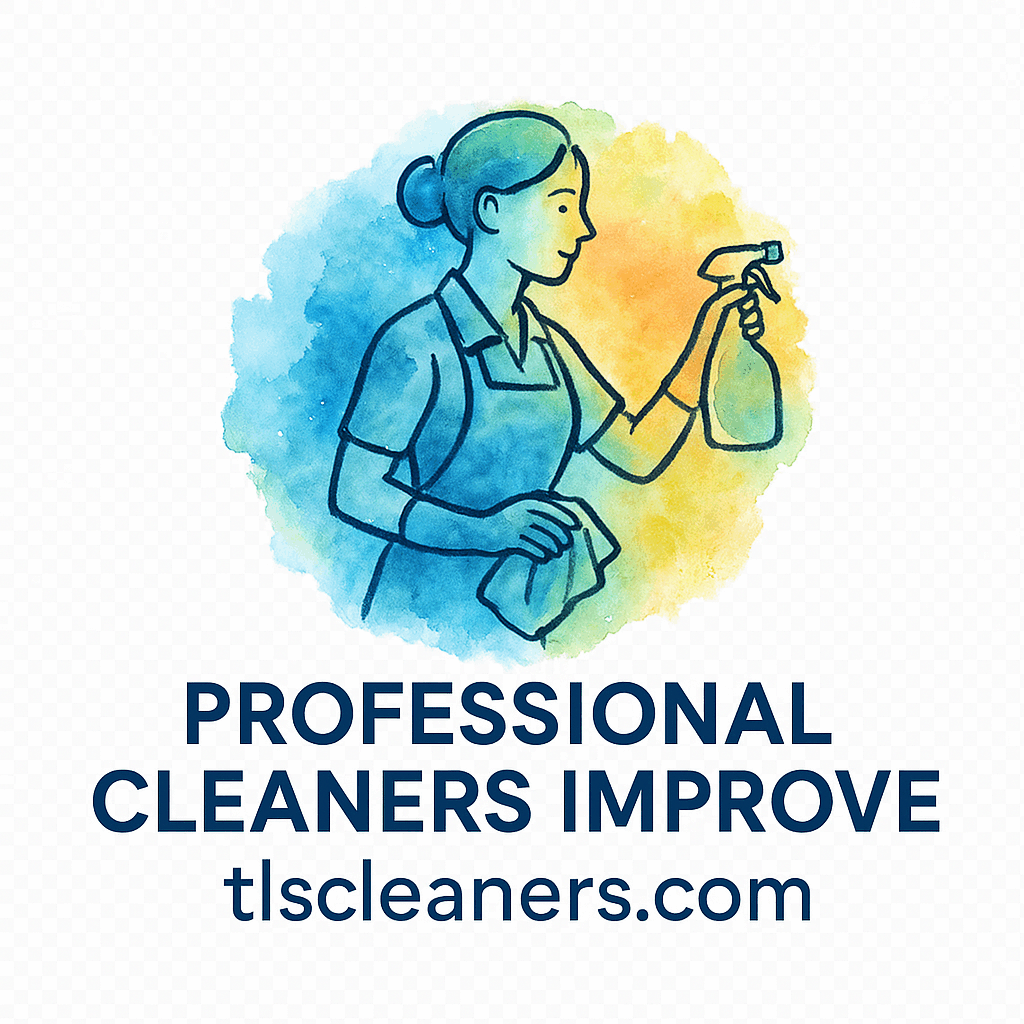Introduction: The Challenge of Keeping a Pet-Friendly Home Clean
If you’re a pet owner, you already know how much joy your furry friend brings. But let’s be real—keeping a pet-friendly home spotless isn’t always easy. Between muddy paws, shedding fur, and the occasional “accident,” your house can quickly lose that fresh, clean feel. That’s why understanding pet-friendly cleaning techniques is essential for maintaining both a clean and safe home.
Why Pet-Friendly Cleaning Matters
A pet-friendly home isn’t just about odor control—it’s about health, safety, and comfort for both pets and people.
Health Benefits for Both Pets and Owners
Did you know that using the wrong cleaning chemicals can make your pets sick? Pets are often closer to the floor, where residues linger. Breathing in or touching toxic substances can cause allergies, skin irritations, or even long-term health issues.
A cleaner home also means fewer allergens floating around—great news for families dealing with pet dander sensitivities. Regular cleaning helps keep bacteria, fleas, and ticks at bay, promoting a healthier environment for everyone.
The Importance of Eco-Friendly and Non-Toxic Products
Traditional cleaning products often contain harsh chemicals that can harm your pets. That’s why switching to eco-friendly cleaning is crucial. Using green alternatives minimizes your pets’ exposure to toxins and reduces your household’s environmental footprint.
👉 Check out this resource on Eco-Friendly Cleaning for more insights.
1. Use Pet-Safe Cleaning Products
Your first line of defense in keeping your house pet-friendly is choosing the right cleaning products. The goal? Eliminate germs and dirt without endangering your pets.
Avoiding Harmful Chemicals
Common cleaning agents like bleach, ammonia, and phenols can pose serious risks. Pets have sensitive respiratory systems, and exposure to fumes or residues from these chemicals can cause coughing, vomiting, or worse.
Common Ingredients to Avoid
- Ammonia (found in glass and floor cleaners)
- Chlorine bleach (common in bathroom cleaners)
- Phenols (often used in disinfectants)
- Formaldehyde and glycol ethers (common in air fresheners)
Recommended Eco-Friendly Alternatives
Instead, opt for plant-based cleaners with simple, safe ingredients like vinegar, baking soda, or lemon juice. These natural components effectively clean surfaces without harmful residues.
You can explore more DIY and natural cleaning ideas at Cleaning Tips & DIY.
2. Prioritize Deep Cleaning in Pet Zones
Pets love routine, and so should your cleaning strategy. Focus extra effort on the areas your pets frequent most.
High-Traffic Pet Areas That Need Attention
Floors, Carpets, and Furniture
Pet paws track in dirt, bacteria, and outdoor debris. Regular vacuuming and mopping using pet-safe solutions keep allergens under control. For carpeted areas, steam cleaning is a great option—it sanitizes deeply without chemicals.
Bedding, Toys, and Food Areas
These are hotspots for bacteria and odors. Wash pet bedding weekly in hot water, and sanitize food and water bowls daily. Don’t forget to wipe down toys frequently—they’re germ magnets.
Deep Cleaning Services for Pet Owners
Sometimes, a professional touch is the best solution. Hiring experts from TLS Cleaners’ Specialty Cleaning ensures your home is thoroughly sanitized without endangering your pets.
3. Manage Pet Hair and Dander Effectively
Few things are more frustrating than constant pet hair buildup. Luckily, a few smart cleaning strategies can make all the difference.
Smart Vacuuming and Brushing Techniques
Invest in a vacuum cleaner designed for pet hair. These machines often include HEPA filters to trap allergens and prevent them from re-entering the air. Combine this with regular brushing to keep shedding under control.
Tools That Make Cleaning Easier
- Rubber gloves for hair removal on fabric surfaces
- Lint rollers or microfiber cloths
- Air purifiers with HEPA filters
Tips for Reducing Shedding
Feed your pets high-quality food, ensure regular grooming, and brush them outdoors to minimize indoor fur.
For ongoing maintenance, professional residential cleaning services from TLS Cleaners can help you keep up with the mess.

4. Eliminate Odors Naturally
No one likes walking into a house that smells like a wet dog—or worse. But instead of masking odors with synthetic sprays, go natural.
Natural Deodorizers vs. Artificial Fragrances
Artificial air fresheners might smell pleasant, but many contain volatile organic compounds (VOCs) harmful to pets and humans.
Baking Soda, Vinegar, and Essential Oils
- Baking soda neutralizes bad smells on carpets and upholstery.
- Vinegar removes persistent odors and disinfects naturally.
- Essential oils like lavender or chamomile can freshen the air—just be cautious, as not all oils are safe for pets.
Dangers of Synthetic Air Fresheners
Avoid aerosol sprays or plug-ins with chemicals that can irritate pets’ lungs. Instead, open windows and use air purifiers to maintain freshness.
For more odor-busting tricks, see Cleaning Tips & DIY.
5. Create a Cleaning Schedule That Fits Your Pet’s Lifestyle
Consistency is the secret to success in pet-friendly cleaning. A solid schedule keeps your home in shape without overwhelming you.
Daily, Weekly, and Monthly Cleaning Routines
Morning and Evening Quick Cleans
- Sweep or vacuum pet hair
- Wipe paws after walks
- Empty litter boxes or clean cages
Deep Cleaning Every Few Weeks
- Wash bedding, rugs, and covers
- Clean air vents and filters
- Sanitize feeding areas
Professional Cleaning for Pet Homes
Even the most diligent owners can use some help. TLS Cleaners’ Commercial Cleaning Services also cater to residential clients needing specialized, pet-safe care.
The Role of Professional Cleaners in Pet-Friendly Homes
Expertise in Pet-Safe Cleaning Techniques
Trained professionals know which products and methods keep pets safe while ensuring deep sanitation. They handle everything from upholstery care to allergen control.
Reducing Allergens and Maintaining Hygiene
Professional cleaners can also spot overlooked areas that harbor dirt—like baseboards or under furniture—keeping your home genuinely fresh and healthy.
Common Mistakes to Avoid in Pet-Friendly Cleaning
Overusing Harsh Cleaners
More isn’t better. Over-sanitizing with strong products can irritate your pet’s skin and respiratory system.
Ignoring Hidden Spots Pets Love
Under beds, behind couches, and under feeding stations often hide fur and bacteria. Make these areas part of your regular routine.
Tips for Maintaining a Fresh and Healthy Home
Quick Daily Cleaning Habits
Spend 10–15 minutes tidying up daily to stay ahead of the mess. Focus on visible fur and pet zones.
Seasonal Cleaning for Pet Owners
Each season brings different challenges—muddy springs, dusty summers, or shedding seasons. Adjust your cleaning routine accordingly.
Explore more seasonal advice at TLS Cleaners Seasonal Tips.
Conclusion: A Cleaner, Happier Home for You and Your Pets
Keeping your home pet-friendly doesn’t mean sacrificing cleanliness. With smart routines, safe products, and maybe a helping hand from professionals, you can enjoy a home that’s both spotless and safe for your furry family members. Remember—a clean home is a happy, healthy home, for both pets and people.
FAQs About Pet-Friendly Cleaning
1. What makes a cleaning product pet-safe?
Pet-safe products avoid harmful chemicals like bleach, phenols, and ammonia. Look for plant-based, biodegradable formulas.
2. How often should I deep-clean my home with pets?
At least once a month, though weekly for pet-heavy households is even better.
3. Are essential oils safe for pets?
Some, like lavender, are safe in moderation. Always research before use, as others like tea tree oil can be toxic.
4. How can I stop my house from smelling like pets?
Use natural deodorizers such as vinegar or baking soda, and clean pet bedding frequently.
5. Should I hire professional cleaners for my pet-friendly home?
Yes, especially for deep cleaning. Services like TLS Cleaners specialize in eco-friendly, pet-safe solutions.
6. How do I manage pet hair on furniture?
Use microfiber cloths, lint rollers, or rubber gloves to pick up fur quickly.
7. Can I use vinegar around pets?
Absolutely! It’s a natural disinfectant and deodorizer safe for most pets when used properly.

